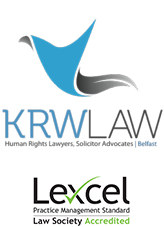THE BIRMINGHAM PUB BOMBINGS 1974: ANOTHER FUNDING BLOW
KRW LAW LLP represents 10 of the families who are relatives of the victims of The Birmingham Pub Bombings 1974.
The High Court recently ruled in favour of the families who had sort to challenge the Coroner’s ruling on the scope of the inquest into the death of their loved ones. The Coroner, in effect, wanting to rule out of scope the issue of the perpetrators – who planted, made, carried and authorised the bombs and who were their associates?
The Coroner’s Ruling on Scope was quashed and he was asked to consider the issue again. Instead he has applied for permission of the Court of Appeal to challenge the judgment of the High Court.
If permission is granted there are complex legal points which could impact upon the coronial process and upon all complex multi-death inquests where there are issues of fault, responsibility and liability and where the investigation is to be conducted in accordance with human rights standards as in the instance of the Birmingham Pub Bombings 1974.
Last year the law was amended to allow KRW to continue to represent our clients. This was because our practice is registered in Northern Ireland. Following that change in the law, legal aid was granted to our clients to enable them to effectively participate in the inquest with the benefit of legal representation. Our clients were not eligible for legal aid because they are working people but the law allowed the financial eligibility limits to be waivered to enable then to ‘benefit’ from legal aid.
Meanwhile, the other parties to the inquest are in receipt of public funds or, in the case of the Police Federation, the subscriptions of their professional membership.
A decision by a coroner is subject to challenge. That challenge is first considered by a judge on the papers who grants permission and then by a judge in court. Two judges sitting as a Divisional Court spent two days hearing argument and ruled in favour of our clients in relation to the Coroner’s Ruling on Scope. That challenge was funded by Crowd Justice, as an application for legal aid was refused because the Legal Aid Agency saw no merit in the challenge despite the decision of a High Court judge.
Legal Aid is available for judicial review challenges but the financial eligibility limits cannot be waived. This is an anomaly in the law when there are challenges to coronial practices made by victims and other parties to an inquest: legal aid may be granted to a party to an inquest who would not otherwise be financially eligible, but not to that party who may seek to challenge the decision of a Coroner to that inquest.
The decision to grant legal aid is subject to both a merits test and a means test. The merits of this judicial review were established when our clients ‘won’ their challenge – despite the view of the LAA – but now they cannot be granted legal aid because now none of them is financially eligible – they are all working people. Extra-Ordinary Working People. Who pay Council tax, National Insurance, Income Tax … which funds the lawyers of the Coroner and the West Midlands Police and others.
The Coroner has endorsed the need for our clients to receive public funding to be represented in the Court of Appeal because of the importance of the matters to be argued if permission is granted. There will be no public funding from the Legal Aid Agency for those we represent.
Once again our clients may have to resort to the generosity of the public. This state of affairs is unsatisfactory for those whose loved ones were the victims. The public funding regime for complex inquests – and legal proceedings arising from them – is not fit for purpose – it is iniquitous. But that is easy to say, and far more difficulty to rectify whilst the anguish of our clients continues.



